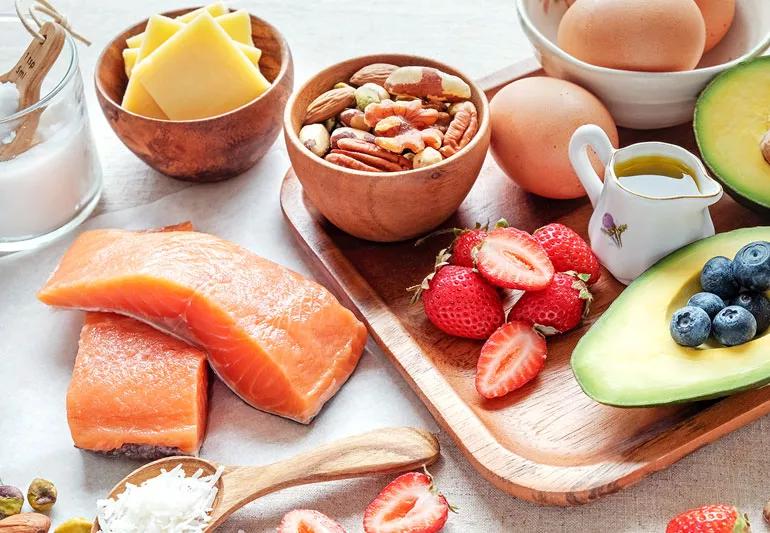The good and bad of this low-carb diet

Image content: This image is available to view online.
View image online (https://assets.clevelandclinic.org/transform/989d6fac-290b-47fa-b2bd-ebd08ed917f8/adkinsDiet-915075870-770x533-1_jpg)
variety of protein and fatty foods for adkins diet
A big, juicy hamburger with no bun. Eggs and bacon for breakfast — but hold the fruit. These are examples of meals you can eat on the low-carb, high-fat Atkins diet.
Advertisement
Cleveland Clinic is a non-profit academic medical center. Advertising on our site helps support our mission. We do not endorse non-Cleveland Clinic products or services. Policy
The Atkins diet has some benefits and can be easier to follow than other diets. But that doesn’t mean you should load up on steaks and butter every night. Registered dietitian Maxine Smith, RD, LD, explains the benefits and risks of this diet plan.
Cardiologist Robert Atkins created the Atkins diet in the 1960s. He believed that carbohydrates — not fat — were responsible for health problems and weight gain. As a result, his diet focused on eating plenty of fat, some protein and very few carbs.
“The goal of the Atkins diet is to change your metabolism. You burn stored body fat, rather than carbs, for energy,” says Smith. “And you can do this if you follow the diet closely. But it’s not for everyone, and there may be health risks involved.”
The Atkins diet doesn’t limit the amount of fat you can eat. And you won’t have to count calories or measure portion sizes.
But you will have to count carbs. Carefully. The Atkins diet severely restricts carbs, especially in the early stages. It uses a tracking method called net carbs, which is the total number of carbs minus its fiber content in grams.
“Normally, your body uses carbohydrates as fuel,” explains Smith. “When you don’t eat carbohydrates, your body turns to stored body fat, which the liver breaks down. This process creates ketones, which the body can then use for energy.”
Advertisement
There are four phases of the Atkins diet, starting with the most restrictive and gradually getting easier. “Beginning at phase 1 promotes more weight loss,” Smith explains. “You can start the diet at a later stage, but you won’t lose as much weight.”
Other Atkins plans allow 40 or 100 net carbs from the start. They are designed for people who have less weight to lose or want to maintain their current weight.
The Atkins diet has been around for decades, and it has some benefits. This diet works for some people because it:
Although Atkins can help people lose weight, it has some drawbacks. The diet:
Advertisement
If you decide to follow the Atkins diet, take a whole foods approach:
If you have diabetes or any health conditions, talk to your doctor before starting a weight loss plan. Don’t try Atkins if you’re pregnant, breastfeeding or have kidney disease.
Advertisement

Sign up for our Health Essentials emails for expert guidance on nutrition, fitness, sleep, skin care and more.
Learn more about our editorial process.
Advertisement
Alternating between periods of eating and fasting may benefit your health
This plant-based eating plan focuses on lowering cholesterol, making it a great companion to the Mediterranean diet
Choose foods that are low in fiber and easy to chew and swallow
The flexible eating plan aims to boost your brain health by focusing on plant-based foods and limiting saturated fat
Designed to lower your blood pressure, this eating plan focuses on heart-healthy foods like whole grains, fruits and vegetables
Pescatarians don’t eat poultry, game or red meat, but they do eat fish and seafood, dairy and eggs
This eating style has many health benefits, including weight loss, an improved microbiome, and increased nutrient and mineral consumption
Research shows promising results from options like the DASH diet and Mediterranean diet
Although it could be used as a moisturizer, this new trend is not recommended
Communicating clear limits helps protect your time, energy and emotional well-being
High cholesterol can be genetic, but testing and treatment can lower your heart disease risk